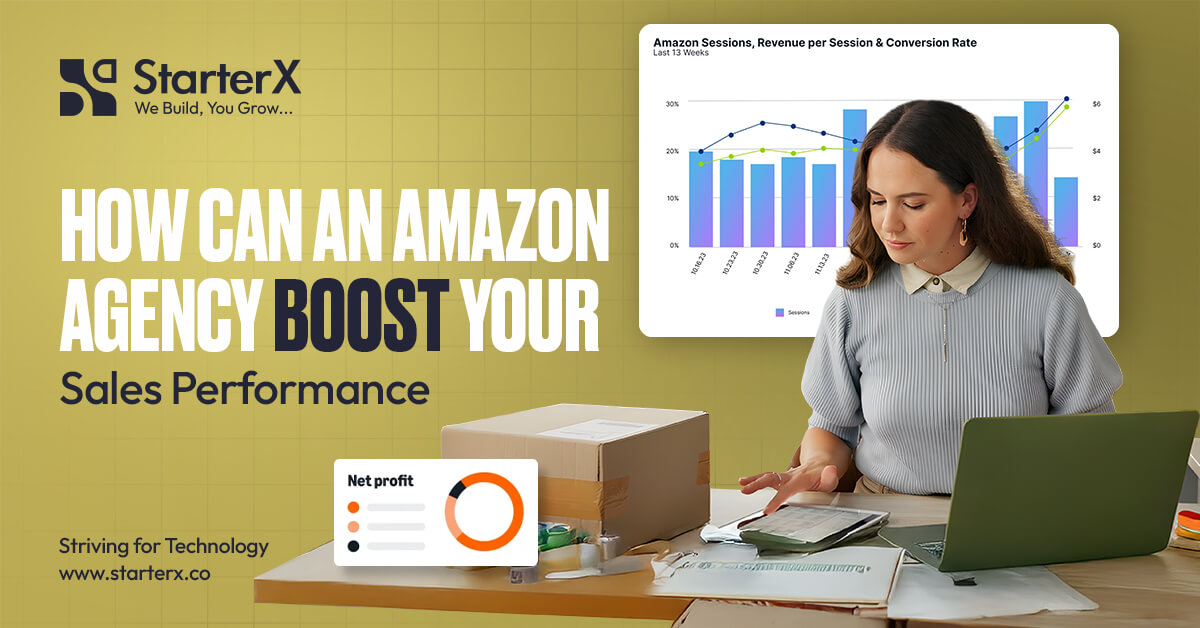Selling on Amazon looks simple from the outside. You list a product, set a price, and wait for sales. But the reality is tougher. Thousands of sellers compete in every category, and Amazon rewards those who optimize every detail of their store.
That is where an Amazon agency comes in. Instead of trying to figure out the marketplace alone, you work with experts who know how to improve product listings, run profitable ad campaigns, and protect your brand.
The real question most sellers ask is: Can an agency actually help me sell more on Amazon? The short answer is yes, when done right. An agency focuses on the areas that matter most for growth:
- Optimizing product listings so titles, descriptions, and images attract more clicks and convert visitors into buyers.
- Managing Amazon ads with targeted campaigns and bid strategies that reduce wasted spend and deliver a stronger return on ad spend.
- Boosting organic rankings through backend keyword optimization, competitor research, and review management.
- Protecting your brand by securing the Buy Box, removing hijackers, and enrolling in Brand Registry.
- Managing inventory and forecasting demand so products stay in stock and avoid costly storage or stockout issues.
- Expanding into new markets by localizing listings, handling taxes, and adapting ads for international customers.
In short, an Amazon agency provides the expertise, tools, and daily management needed to turn your store into a consistent revenue engine.
In this guide, you’ll see how each of these strategies works and what results you can expect when an experienced Amazon agency manages your business.
Table of Contents
Toggle1. Improving Your Product Listings to Win More Customers

Your product listing is the first impression a shopper gets on Amazon. If it is not clear, convincing, and optimized, you will lose clicks to competitors.
An Amazon agency makes sure every part of your listing works together to win attention and drive conversions.
How Do Optimized Titles and Descriptions Increase Sales?
The title and description tell Amazon what your product is, but they also tell customers why they should buy it.
Many sellers make the mistake of stuffing keywords or writing short, generic titles. Agencies balance both sides: they use keywords that help with search ranking while writing copy that actually sells.
Example of optimization:
- Before: “Men’s Running Shoes Size 10”
- After: “Lightweight Men’s Running Shoes for Everyday Comfort | Breathable Mesh, Cushioned Sole, Size 10”
The second version includes target keywords, highlights the benefits, and sounds persuasive. Buyers know the product is lightweight, breathable, and comfortable, which builds trust before they even click.
Well-written bullet points and descriptions go deeper by covering features, answering objections, and using natural search terms.
This helps you rank higher and also makes customers more confident to buy.
What Is the Role of A+ Content and Visuals?
A+ Content allows brands to replace plain text with enhanced visuals, charts, and branded sections.
This section is not only attractive but also reduces friction in the buying process.
When an agency creates A+ Content, they usually include:
- Comparison charts that show why your product stands out
- Lifestyle images that help customers picture the product in use
- Brand story sections that build trust
According to Amazon, A+ Content can lift conversions by 3 to 10 percent. It also improves retention because customers feel more confident that they are choosing the right product.
Why Are Images So Important for Conversions?
On Amazon, customers cannot touch or test your product, so images carry the most weight.
An agency ensures you meet Amazon’s technical requirements and also creates visuals that persuade.
- Technical standards: At least 1000×1000 pixels, white background for the main image, multiple angles.
- Creative best practices: Lifestyle shots that show the product in use, close-ups that highlight texture and details, and infographics with feature callouts.
Agencies also know how to design a consistent image set.
For example, one image shows the product alone, another shows it being used, and another lists benefits with text overlays. This combination educates and convinces buyers within seconds.
How Does Testing Improve Listings?
Optimization is never finished. An agency uses A/B testing to compare different versions of titles, bullet points, and images. They track which variation brings in more clicks or conversions and keep refining.
Example of results:
A seller tested two main images. The first was a simple product shot, while the second showed the product being used by a person.
The lifestyle image increased click-through rate by 20 percent and raised sales significantly.
Agencies also test small copy changes, such as reordering bullet points or adding a benefit-focused phrase at the start of a title. Even a one percent lift in conversions can translate into a big revenue increase when scaled across hundreds of sales.
2. Managing Advertising to Grow Sales Efficiently
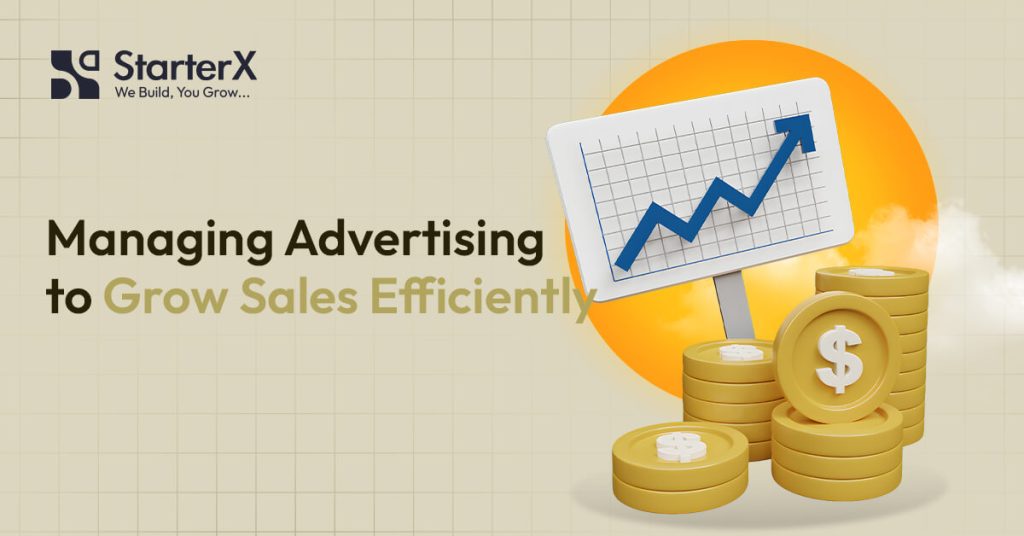
Advertising on Amazon is not optional anymore. With thousands of sellers in every category, paid ads are often the difference between being seen and being invisible.
The challenge is that Amazon ads can burn through your budget quickly if they are not managed carefully.
An Amazon agency handles everything from campaign setup to daily monitoring so your ads bring in consistent, profitable sales instead of wasted spend.
What Types of Amazon Ads Do Agencies Manage?
Amazon offers several advertising formats.
Each one serves a different purpose in the customer journey.
- Sponsored Products puts your product directly in search results and on competitor listings. These are the most common ads and usually deliver the highest conversions.
- Sponsored Brands showcase your logo and multiple products at the top of search results. They are ideal for building brand recognition and cross-selling.
- Sponsored Display helps you retarget shoppers who viewed your product but did not buy. These ads also appear on Amazon, which extends your reach.
An agency knows how to structure campaigns across all three ad types. They decide how much budget to give each format and adjust depending on your goals, whether that is maximizing immediate sales or building long-term brand awareness.
How Do Bid Adjustments Improve Ad Performance?
Amazon ads run on a bidding system. If your bid is too high, you overspend and lose profit. If it is too low, you get little to no visibility.
Agencies manage bids continuously. They track which keywords are profitable, which ones drain budget, and adjust bids to balance cost with performance.
Two important metrics guide this process:
- ACoS (Advertising Cost of Sale): The percentage of ad spend compared to sales. A healthy range for many categories is 15 to 30 percent.
- ROAS (Return on Ad Spend): How much revenue you earn for each dollar spent. Agencies aim to push this number higher while controlling costs.
Agencies also use advanced bidding strategies like:
- Raising bids on high-performing keywords to capture more sales
- Lowering bids on keywords with high spend but poor conversions
- Adjusting bids by placement (top of search vs product detail pages)
How Do Agencies Find Hidden Keyword Opportunities?
Keywords are the foundation of Amazon advertising. But the best opportunities are often buried in the data.
Agencies mine search term reports to uncover:
- Long-tail keywords that competitors miss but convert well
- High-performing terms that should be scaled further
- Negative keywords that waste spend and should be excluded
- Seasonal and trending terms that drive short-term traffic spikes
This process is ongoing. As shopper behavior changes, agencies keep refreshing keyword lists so campaigns stay aligned with demand.
Why Testing and Optimization Matter in Advertising
Launching ads is only the beginning. Amazon’s marketplace changes constantly, which means what works today might not work tomorrow.
Agencies run continuous A/B testing across campaigns. They test:
- Different ad creatives
- Keyword match types (broad, phrase, exact)
- Daily budget caps
- Placement strategies
By reviewing results weekly, they pause underperforming ads, scale winners, and make sure every dollar is used efficiently.
Testing is also how agencies adapt quickly. If a competitor raises bids or a seasonal trend appears, they can shift your ad strategy before money is wasted.
Why Advertising Management Matters for Long-Term Growth
Ads do more than bring immediate sales. They also fuel organic ranking.
When ads drive more clicks and sales, Amazon’s algorithm sees your product as relevant and pushes it higher in organic search results. This creates a cycle where advertising builds momentum for both paid and organic growth.
An Amazon agency understands this relationship and manages ads with both short-term ROI and long-term ranking in mind.
3. Helping Your Products Rank Higher Organically
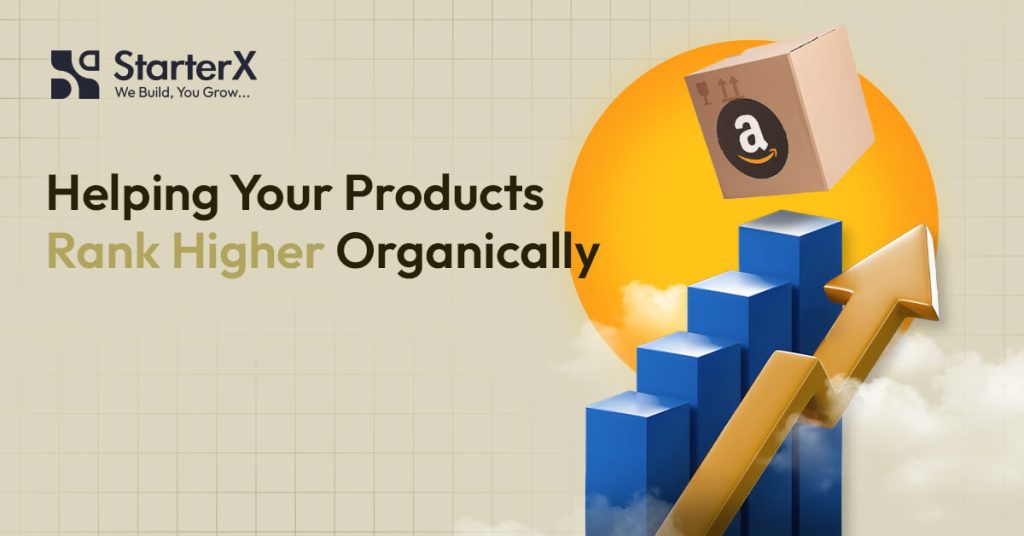
Paid ads bring quick results, but long-term success on Amazon depends on organic rankings. When your products appear naturally at the top of search results, you earn steady sales without relying only on ad spend.
An Amazon agency uses strategies that signal to Amazon’s algorithm that your product is relevant, trustworthy, and competitive.
What Are Backend Search Terms and Why Do They Matter?
Backend search terms are keywords hidden in your product listing. Shoppers never see them, but Amazon’s algorithm uses them to decide when your product should appear in search results.
Many sellers either skip backend keywords or repeat the same ones already in their title. Agencies go further by adding variations, synonyms, and related search terms that customers may use.
Example for a yoga mat:
- “exercise mat”
- “pilates mat”
- “non-slip workout mat”
- “home fitness mat”
By including these backend terms, your listing can show up for a wider range of searches without cluttering the visible copy.
Why Must Listings Stay Updated to Stay Competitive?
Amazon’s marketplace is constantly changing. Competitors update their listings with new keywords, features, and offers. If you do not update yours, your ranking can slowly drop.
An agency regularly reviews search trends, competitor strategies, and customer feedback. They then refresh your titles, bullet points, images, and A+ Content to keep listings relevant.
This ongoing optimization keeps you aligned with what buyers are searching for today, not just what worked months ago.
How Do Reviews Impact Organic Ranking?
Reviews are not only about customer trust. They are also a ranking factor.
Products with more reviews and higher ratings often appear higher in search results. Shoppers are also more likely to buy when they see strong social proof.
- Products with 4 stars or more convert up to 30 percent higher than those below 4 stars.
- A steady flow of fresh reviews signals to Amazon that your listing is active and relevant.
Agencies encourage reviews within Amazon’s rules, such as using the “Request a Review” button in Seller Central or running compliant follow-up campaigns. They also analyze reviews to spot trends, like repeated complaints about packaging or features, and use that insight to improve listings.
How Agencies Tie It All Together
Organic ranking is not driven by a single factor. It is the result of optimized keywords, updated content, and customer signals like reviews.
An Amazon agency manages all of these pieces together, which is why sellers see long-term growth instead of short-lived gains.
4. Launching New Products for Rapid Sales Growth

Launching a new product on Amazon is one of the most challenging stages for any seller. With no reviews, no sales history, and no organic ranking, it is difficult to stand out.
An Amazon agency helps you plan and execute a launch strategy that builds momentum quickly and sets your product up for long-term success.
Why Is Keyword Planning Important Before Launch?
Most new products fail because they are not optimized for the right search terms from day one. Agencies conduct keyword research before launch to identify both high-volume and low-competition terms.
This ensures that your product title, bullets, and backend keywords are designed to capture relevant traffic immediately.
By ranking for the right keywords early, your product gains visibility and begins climbing search results faster.
What Promotions Work Best for New Product Launches?
Amazon rewards products that generate sales velocity in the early days. To accelerate momentum, agencies run targeted promotions such as:
- Lightning Deals that give your product high visibility for a limited time.
- Coupons that attract price-sensitive shoppers and boost click-through rates.
- Discount campaigns that make your listing more appealing and competitive.
Promotions also improve click-through rates, which signals to Amazon’s algorithm that your product deserves higher placement.
How Does Amazon Vine Help with Early Reviews?
One of the biggest barriers to launch success is a lack of reviews. Shoppers hesitate to buy a product with no social proof.
Amazon Vine solves this by allowing you to send products to trusted reviewers in exchange for honest feedback. While there is a cost, Vine is often the fastest way to secure early reviews that build trust and improve conversion rates.
Why Is Inventory Management Critical During a Launch?
Nothing hurts a launch more than running out of stock. When a product goes out of stock, you lose momentum, ranking, and the Buy Box.
Agencies forecast demand, plan FBA shipments, and monitor sales velocity so your product stays available throughout the launch phase. They also prevent overstocking, which can lead to high storage fees.
How Agencies Manage the Full Launch Process
A launch is not just about listing a product and turning on ads. It is a coordinated process that combines keyword planning, promotions, review building, and inventory control.
An Amazon agency manages these steps together, creating a launch timeline that maximizes exposure while protecting profitability.
5. Protecting Your Brand to Secure Long-Term Sales

On Amazon, building a strong brand is just as important as selling individual products. Without protection, competitors and unauthorized sellers can damage your reputation, steal sales, or even push you out of the Buy Box.
An Amazon agency helps safeguard your brand so that your growth is sustainable over the long term.
What Are the Benefits of Brand Registry?
Amazon Brand Registry gives sellers more control over their listings and intellectual property. Agencies guide you through enrollment and use the program to unlock valuable tools, including:
- A+ Content that makes your listings more professional.
- Amazon Brand Storefronts that create a branded shopping experience.
- Stronger IP protection against counterfeiters and listing hijackers.
- Search term reports that provide insights into how customers find your products.
How Do Agencies Prevent Hijackers and Counterfeits?
Hijackers are unauthorized sellers who list counterfeit or gray-market versions of your products. They often undercut your price, which damages your brand reputation and can cause you to lose the Buy Box.
Agencies monitor your listings daily to detect hijackers quickly. They file infringement claims, submit removal requests, and take action through Amazon’s internal systems to protect your listings.
Why Is Buy Box Control So Important?
The Buy Box is the default purchase option on a product page. If you lose it, most shoppers will never buy from you, even if your product is listed.
Agencies help you maintain Buy Box control by:
- Monitoring pricing and ensuring competitiveness
- Managing inventory levels to avoid stockouts
- Addressing unauthorized sellers who compete for the Buy Box
Losing the Buy Box even briefly can result in a sharp drop in sales. Agencies protect it to ensure your revenue remains consistent.
How Agencies Build Long-Term Brand Security
Brand protection is not a one-time task. It requires daily monitoring, enforcement, and strategy.
An Amazon agency builds systems that keep your brand safe, maintain your Buy Box, and ensure that your listings reflect your business accurately.
6. Managing Reviews to Build Credibility
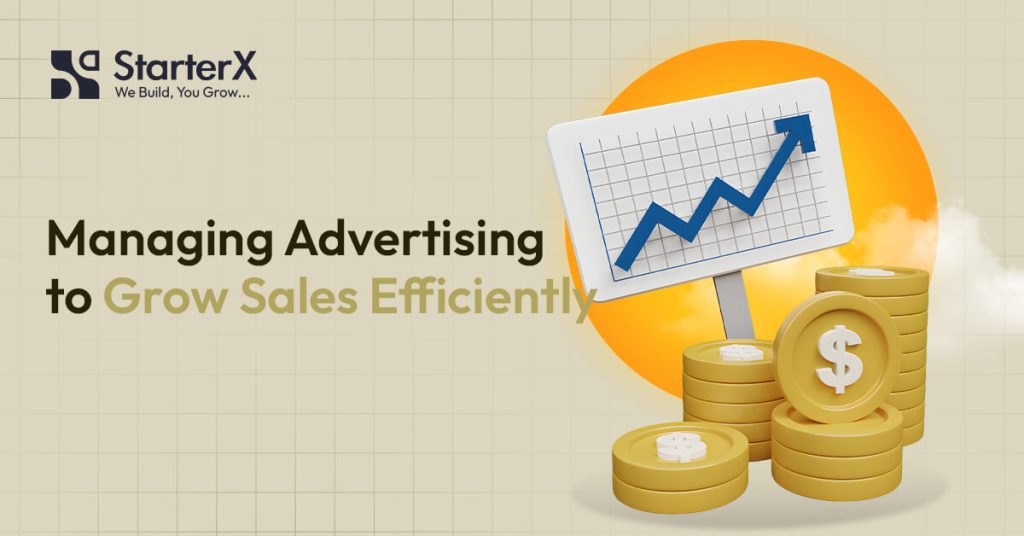
On Amazon, reviews are more than customer opinions. They are one of the strongest signals of trust and directly affect both conversion rates and organic rankings.
An Amazon agency helps you build a steady flow of positive reviews, handle negative feedback professionally, and use customer insights to improve your listings.
How Can You Safely Encourage Reviews?
Amazon has strict rules for requesting reviews. Asking the wrong way can lead to penalties or account suspension.
Agencies know how to stay compliant while still generating reviews. They use tools inside Seller Central, such as:
- “Request a Review” button that sends an automated, Amazon-approved message.
- Follow-up emails through Amazon’s system that remind buyers to share their experience.
- Amazon Vine program for early reviews on new products.
By following Amazon’s guidelines, agencies ensure you get a steady stream of legitimate reviews that strengthen your reputation.
How Should Negative Feedback Be Handled?
Every seller receives a negative review eventually. What matters is how you respond.
Agencies step in quickly when negative reviews appear. They write professional, empathetic responses that show you take customer concerns seriously.
In some cases, they help you request review removal if the comment violates Amazon’s guidelines.
Handled well, even a negative review can become an opportunity to prove customer service and protect your brand image.
How Can Customer Reviews Improve Your Listings?
Reviews are also a source of valuable insights. Agencies analyze them to identify recurring issues or opportunities.
For example:
- If customers say the packaging is confusing, the listing can be updated with a clear unboxing image.
- If buyers highlight a feature they love, that benefit can be emphasized in the title or bullet points.
This process not only improves conversions but also helps reduce future negative feedback.
Why Reviews Are Critical for Long-Term Growth
- Products with 4 stars or higher convert up to 30 percent better than lower-rated products.
- A steady flow of fresh reviews signals to Amazon that your product is active and relevant.
- Reviews improve organic rankings, which means more free visibility over time.
An Amazon agency combines safe review generation, professional feedback handling, and insights from customer comments to keep your products competitive.
7. Keeping Stock Moving to Avoid Lost Sales
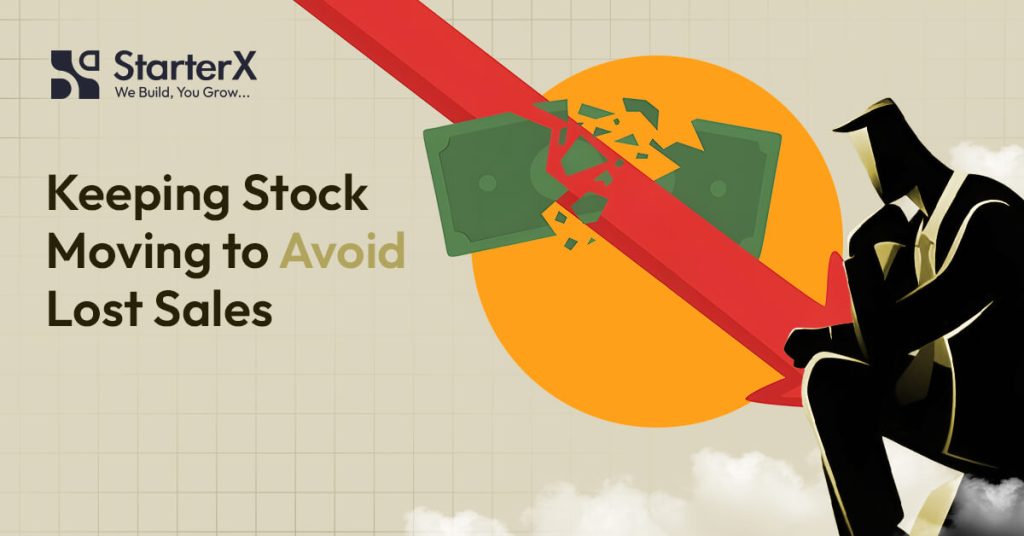
Strong listings and ads will not matter if your products are out of stock. When inventory runs dry, you lose sales, ranking position, and often the Buy Box.
On the other side, overstocking ties up cash and creates high storage fees. An Amazon agency helps you balance supply and demand so stock moves efficiently without costly mistakes.
How Do Agencies Predict Demand?
Agencies use sales history, seasonal trends, and market data to forecast demand. They look at previous peak periods, such as holidays, Prime Day, or back-to-school season, to estimate how much stock you will need.
For new products, they analyze competitors in your category to build realistic forecasts.
This proactive planning prevents last-minute shortages and ensures you have the right amount of stock when demand increases.
Why Is Avoiding Stockouts So Critical?
When a product goes out of stock, the consequences are bigger than just missed sales.
- Your organic ranking drops because Amazon prioritizes products that are available.
- Competitors capture your lost traffic and sales.
- Regaining lost ranking after a stockout is expensive and slow.
Agencies prevent this by monitoring inventory daily and creating reorder alerts well before stock runs out.
How Do Agencies Prevent Overstocking and Extra Fees?
Carrying too much inventory creates another problem: high storage and long-term FBA fees. This can eat into profits, especially for slow-moving products.
Agencies analyze sell-through rates to recommend reorder quantities that keep inventory healthy without piling up excess stock.
For slower products, they may suggest running small promotions to clear old stock and avoid costly fees.
How Do Agencies Prepare Inventory for FBA?
Amazon has strict requirements for labeling, packaging, and shipping to FBA warehouses.
Mistakes can cause delays, rejected shipments, or extra costs.
Agencies manage the entire FBA preparation process, including:
- Ensuring products meet labeling standards
- Creating compliant shipments in Seller Central
- Coordinating delivery to the correct fulfillment centers
By handling the details, they help you avoid costly errors and keep products available to customers.
Why Inventory Management Protects Long-Term Growth
Inventory health directly affects your Amazon performance. Running out of stock hurts your rankings, while overstocking drains profit.
Agencies create systems that balance supply and demand so your business stays consistent month after month.
8. Using Data to Make Smart Business Decisions

Amazon gives sellers access to a huge amount of data. The challenge is knowing which numbers matter and how to act on them.
An Amazon agency turns raw data into clear insights. This helps you understand where your sales come from, how much profit you actually make, and what opportunities are worth pursuing.
What Metrics Do Agencies Track?
Instead of focusing only on total sales, agencies build dashboards that show the full picture.
Key metrics often include:
- Sales performance broken down by product, ad type, and region
- Conversion rate to measure how well listings turn clicks into sales
- Advertising Cost of Sale (ACoS) and Return on Ad Spend (ROAS) for paid campaigns
- Profit margins after Amazon fees, shipping, and advertising costs
- Inventory health to spot risks of stockouts or overstocking
By tracking these metrics together, agencies can identify what is working and what needs fixing.
How Do Agencies Spot Product Trends and Seasonality?
Buying patterns on Amazon shift with seasons, holidays, and customer behavior.
Agencies review sales data to identify:
- Products that spike during certain times of the year
- Categories that trend upward due to lifestyle changes or market shifts
- Opportunities for bundling or cross-selling based on customer demand
Example: A home décor seller discovered holiday sales surged by 4 times higher in December. With agency guidance, they stocked and advertised early to capture maximum revenue.
Why Is Profit Tracking More Important Than Revenue?
High sales numbers look impressive, but they do not always equal high profits.
Agencies calculate total costs, including:
- Amazon referral fees
- Fulfillment by Amazon (FBA) costs
- Advertising spend
- Storage fees
- Shipping costs
This analysis shows the true profit margin on each product. Sometimes, a product with high sales volume may actually generate little or no profit after costs.
How Do Paid Ads and Organic Sales Work Together?
Paid and organic performance are connected. When ads drive more sales, Amazon’s algorithm rewards your listing with better organic rankings.
Agencies track both channels together, so you know:
- How much of your growth comes from ads
- How ads are influencing organic performance
- Where to allocate the budget for the best long-term impact
9. Expanding Your Business to Global Markets

Amazon is not just the United States marketplace. With platforms across Europe, Asia, the Middle East, and beyond, sellers have the chance to reach millions of new customers worldwide.
The challenge is that each market has different customer habits, languages, and regulations. An Amazon agency helps you expand into these regions strategically, without costly mistakes.
How Do Agencies Research New Countries and Regions?
Before entering a new marketplace, agencies analyze whether it makes financial sense.
They study:
- Product demand in the target country
- Level of competition in your category
- Pricing and profit potential after fees and taxes
- Customer shopping behaviors and preferences
This research ensures you only expand into markets where you have a realistic chance of success.
Why Is Translating Listings the Right Way So Important?
Many sellers make the mistake of relying on automatic translation tools.
The result is listings that sound unnatural and fail to connect with local shoppers.
Agencies work with professional translators who also understand Amazon SEO.
This means your listing is not only accurate but also includes the right keywords local customers actually use.
Example: In the United States, parents search for “diaper bag.” In the United Kingdom, the term is “nappy bag.” Using the right keyword makes all the difference.
How Do Agencies Handle Taxes and Compliance?
Selling internationally brings added complexity. You need to comply with local tax laws, import duties, and marketplace regulations.
Agencies help with:
- VAT registration in Europe
- Import compliance for customs clearance
- Staying aligned with Amazon’s regional rules
By managing compliance, agencies protect you from penalties and disruptions to your sales.
How Do Agencies Adapt Ads and Listings for Local Tastes?
What appeals to customers in one country may not work in another. Agencies adapt listings and ads to reflect cultural differences, shopping habits, and local search behavior.
This could mean changing imagery, highlighting different product benefits, or adjusting pricing strategies.
Example: A product marketed in the US as “eco-friendly” might be promoted in Germany as “sustainable,” since that keyword resonates more with local shoppers.
Why Global Expansion Requires Professional Support
Expanding globally opens up huge growth opportunities, but it also increases complexity.
An Amazon agency brings the knowledge and systems to handle research, translations, compliance, and advertising, so your expansion is smooth and profitable.
10. Strengthening Your Brand with Creative Content

On Amazon, strong creativity is what separates a product listing from a brand. Shoppers trust professional, engaging content, and Amazon rewards it with better visibility and higher conversions.
An Amazon agency helps you design storefronts, videos, and branded visuals that not only sell but also build long-term customer loyalty.
What Are the Benefits of an Amazon Storefront?
An Amazon Storefront acts like your own branded mini-website inside Amazon. It gives shoppers a focused space to explore your full catalog without distractions from competitors.
Agencies design storefronts to:
- Showcase your product range in a structured way
- Tell your brand story with images, text, and video
- Highlight bestsellers, seasonal promotions, or product bundles
Storefronts also improve credibility because they look polished and professional. They give shoppers the confidence that they are buying from a trusted brand.
How Do Videos Improve Amazon Sales?
Video is one of the most powerful tools on Amazon. Shoppers who watch videos understand your product faster and feel more confident buying.
Agencies produce different types of videos, such as:
- Product demonstrations that show how it works
- Lifestyle clips that show the product in real situations
- Comparison videos that highlight advantages over competitors
Listings with videos often see engagement rates increase significantly. In fact, some studies show adding video can lift conversion rates by up to 80 percent.
Why Should Creative Content Be Tested?
Not all creative work is the same way for every audience. Agencies test variations of images, infographics, and videos to see which ones drive higher clicks and conversions.
For example:
- One product may perform better with a lifestyle video.
- Another might benefit from a comparison chart in the first image slot.
Testing ensures your creative is always optimized, not just uploaded and forgotten.
Why Is Consistent Brand Messaging Important?
Consistency builds recognition. If your listings, storefront, and ads all carry the same tone, visuals, and messaging, customers are more likely to remember your brand and trust it.
Agencies create brand guidelines and apply them across every touchpoint. This makes your brand look cohesive and professional, even as you add new products or expand into new markets.
Knowing What Results to Expect from an Amazon Agency
Working with an Amazon agency can transform your business, but results depend on your product, budget, and competition.
Agencies set realistic expectations so you understand what growth looks like in both the short term and long term.
How Much Sales Growth Can You Expect?
Most sellers see measurable improvements within the first few months of working with an agency. While results vary by category, it is common to see:
- 15 to 30 percent sales growth within the first 6 months
- Faster growth for products in high-demand categories
- Steady improvement as listings, ads, and rankings are optimized together
Agencies focus not just on more sales, but on profitable sales that grow your bottom line.
How Long Does It Take to See Results?
The timeline for results depends on the strategy:
- Advertising campaigns: Improvements are often seen within weeks since ads bring immediate visibility.
- Organic rankings: Growth usually takes 3 to 6 months, as it depends on keywords, reviews, and sales history.
- New product launches: Agencies typically aim to build momentum within the first 30 to 90 days.
What Real Seller Outcomes Look Like
Agencies often share case studies to demonstrate results:
- A mid-sized brand improved monthly revenue by 40 percent in 90 days through listing optimization and ad management.
- A startup used a mix of promotions and Amazon Vine reviews to reach profitability within 4 months of launching.
- An established seller reduced ACoS by 25 percent while increasing sales volume by scaling campaigns intelligently.
These examples show what is possible when strategies are executed properly.
What Factors Influence Your Results?
Results depend on several variables that are unique to each business:
- Budget: More budget allows for stronger campaigns, but agencies also ensure efficiency.
- Category: Competitive niches often require more investment and time.
- Product quality: Strong reviews and customer satisfaction accelerate growth.
- Seasonality: Some products sell better during specific times of the year.
- Brand maturity: Established brands may scale faster, while new ones need more time to build trust.
Agencies adjust strategies based on these factors to maximize performance.
Conclusion
Selling on Amazon is more competitive than ever. Strong listings, smart advertising, positive reviews, and reliable inventory management are no longer optional. They are the foundation of long-term success.
An Amazon agency brings the expertise and systems needed to manage all of these moving parts.
They optimize your listings so more shoppers click and buy. They run campaigns that turn ad spend into profit instead of wasted budget.
They help you climb organic rankings, protect your brand from hijackers, and manage reviews to build credibility.
They also forecast inventory, expand into global markets, and use data to guide every decision.
In short, an agency takes the complexity out of selling on Amazon and turns it into a growth plan.
Instead of spending your time troubleshooting listings or managing ads, you can focus on your products and customers while professionals handle the rest.
If you want to scale faster, protect your brand, and make smarter business decisions, partnering with an experienced Amazon agency may be your next best move.
Frequently Asked Questions
How does an Amazon agency improve product listings?
An Amazon agency writes keyword-rich titles, persuasive descriptions, and uses A+ Content and high-quality images to make listings more visible and convincing. Optimized listings attract more clicks and convert more shoppers into buyers.
Can an Amazon agency help reduce wasted ad spend?
Yes. Agencies create targeted campaigns, adjust bids daily, and analyze search term reports. This ensures your ads reach the right customers while keeping ACoS under control and improving overall return on ad spend.
How do agencies boost organic rankings on Amazon?
They optimize backend search terms, update listings regularly, and manage reviews that signal trust to Amazon’s algorithm. These strategies help products rise in organic search and gain long-term visibility.
Do Amazon agencies help with new product launches?
Yes. Agencies plan pre-launch keywords, run promotions, manage Amazon Vine reviews, and forecast inventory. This builds sales velocity and credibility, which are essential for a successful product launch.
How do Amazon agencies protect a brand?
Agencies enroll you in Brand Registry, monitor for hijackers, remove counterfeiters, and protect Buy Box control. This ensures your brand reputation and revenue are not damaged by unauthorized sellers.
Can an Amazon agency manage reviews effectively?
Yes. Agencies use compliant methods to encourage reviews, respond professionally to negative feedback, and turn customer insights into listing improvements that increase future sales.
How do agencies help avoid stockouts and overstocking?
They use forecasting tools, monitor inventory levels, and plan FBA shipments. This prevents stockouts that hurt rankings and avoids high storage fees from excess inventory.
What role does data play in boosting sales with an agency?
Agencies build dashboards that track sales, profit, advertising costs, and inventory health. These insights help sellers make smarter, data-driven decisions that improve long-term growth.
Can Amazon agencies expand sales globally?
Yes. Agencies research new markets, translate listings with local keywords, handle taxes and compliance, and adapt ads for regional buyers. This allows brands to grow internationally with less risk.
What kind of results can I expect from an Amazon agency?
Many sellers see 15–30 percent sales growth within the first 6 months. Results depend on your category, budget, and competition, but agencies focus on both short-term wins and long-term profitable growth.
The StarterX Team is a group of e-commerce experts with years of hands-on experience in launching, managing, and scaling online businesses. As trusted authorities in the e-commerce space, we’ve helped entrepreneurs grow successful stores on Amazon, Shopify, TikTok, and Walmart. Backed by real-world results and a data-driven approach, we deliver proven strategies and insights you can trust to succeed in the digital marketplace.

